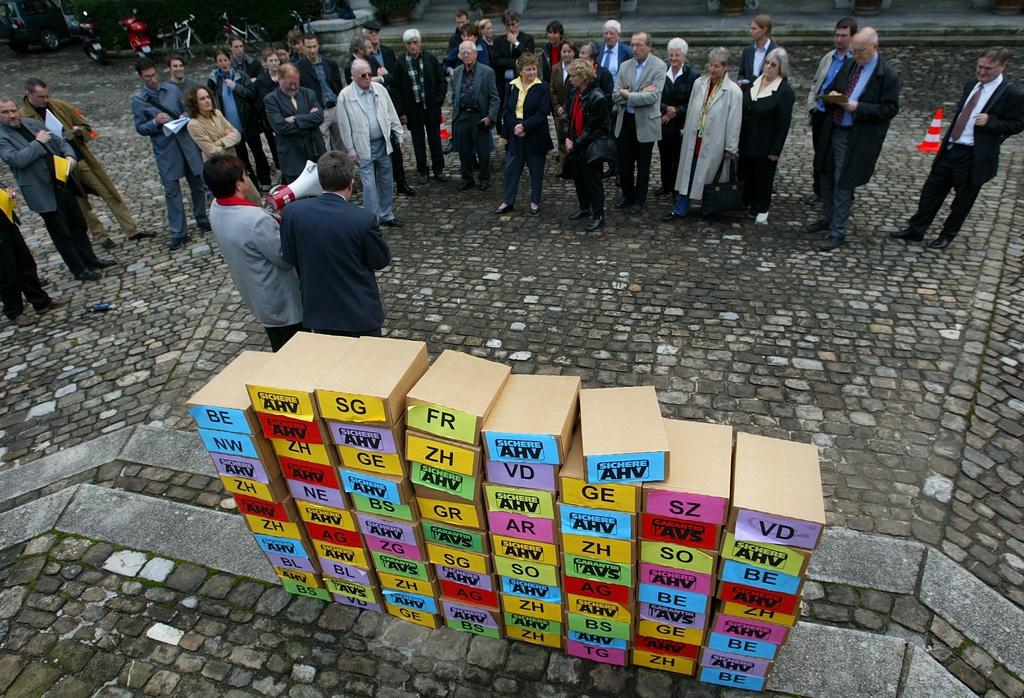Voting until you get the result you want
The excessive use of referendums in Latin America has become a sign of institutional weakness.
Referendums, or plebiscites, are generally used in different parts of the world as an instrument of power, not democracy. In authoritarian regimes they are used as signs of strength to flatter leaders and to show off the ability to mobilize citizens, thus sending a clear signal both internally and abroad.
In semi-democratic regimes they are used to avoid traditional checks and balances – annoying features of state power such as parliaments or the judicial system.

In democracies, however, referendums are a solution for those wanting to avoid a costly decision. They are an instrument for breaking deadlocks between political powers or for reducing tensions within parties or ruling coalitions.
Many analysts claim that in Latin America popular votes orchestrated by the authorities lead to Caesarism and the weakening of republican institutions. I fully believe that there is a relationship between the two. But I would reverse the causality: having weak republican institutions is generally a condition for the wrong use of referendums. When a state’s power is focused on one specific political reform, it is very hard for popular votes to prevent a planned objective. I remember when Venezuelan President Hugo Chavez lost his bet for constitutional reforms [in December 2007] which had helped his re-election. The very same night that the results were announced, he declared that he would repeat his attempt “as many times as necessary”. And that eventually occurred in early 2009.
Not all equal
Of course, not all referendums are equal. But, whether it is by action or omission, they do not fit that well into the big ideal democratic picture, as they call into question the responsible functioning of a democracy. They can be used with shortsighted or selfish aims, and may be manipulated by those in power. But let’s not forget that abuse of any political instrument, such as vetoes or presidential decrees, also entails the same destructive consequences for republican institutions; we should not forget Argentina under former president Carlos Menem from 1989-1999.
But, contrary to what many people are keen to demonstrate, even when driven from the top, popular votes do not systematically support the position of the government of the day. It has been proven that direct democracy instruments are less open to manipulation than is commonly thought.
In the past 40 years, 109 popular votes were launched by the authorities in Latin America in the form of plebiscites or mandatory referendums. Of these, 64 (58%) received the support of the population, while 45 were rejected. But votes proposed by the general public – such as popular initiatives or referendums against existing laws – were not accepted automatically either. Of the 18 popular votes that took place, nine were accepted by the general public.
Windows of opportunity
In countries where democracy is under pressure, these votes may represent small windows of opportunity for the opposition. On several occasions – not just in Venezuela – citizens have been able to express political positions that go well beyond what the authorities may desire; they therefore represent a sort of veto. This has also occurred in authoritarian regimes, such as in Uruguay in 1980 or Chile in 1988, when the population rejected Augusto Pinochet’s continued reign, leading to democratic elections a year later.
Exercising a political veto can be both active, such as voting against a government’s plans, as we saw in Bolivia’s presidential election this year, or passive. In some countries, citizens’ refusal to go out and vote means there may be no quorum to approve a reform, as witnessed in Colombia in 2003.
Perhaps citizens are much better at making distinctions than many analysts believe. This brings to mind a complex and perhaps dangerously counterfactual question. Was Chavez’s Venezuela worse off with or without referendums? Beyond the fact that any answer will be purely speculative, it could well be: “not necessarily”. Otherwise, the constitutional reform the people approved in a nationwide vote in 2007 would have been approved relatively easily thanks to the incredible majorities the government enjoyed in the National Assembly.
Direct democracy is not necessarily averse to representative democracy, but in certain situations it can be. Direct democracy can be a dangerous game when other key elements of a state’s institutional framework are not in good health, such as the parliament, political parties or justice system. While in some countries popular and direct votes have passed almost unnoticed, such as in Uruguay, in others they have led to conflict. In Honduras, for example, an attempt by the deposed president Manuel Zelaya to instrumentalize a vote clearly aimed at his re-election led to the first military coup in Latin America this century.
Drawing categorical conclusions about the positive or negative consequences of direct democracy, regardless of the type of instrument used or the context, is a grave error. While this argument may seem trivial, it certainly is not.
copyright: ©DAVID ALTMAN / EDICIONES EL PAÍS, SL 2016
The views expressed in this article are solely those of the author, and do not necessarily reflect the views of swissinfo.ch. The original version was first published in the Spanish El País newspaperExternal link.
Translated from Spanish by Simon Bradley

In compliance with the JTI standards
More: SWI swissinfo.ch certified by the Journalism Trust Initiative












You can find an overview of ongoing debates with our journalists here . Please join us!
If you want to start a conversation about a topic raised in this article or want to report factual errors, email us at english@swissinfo.ch.